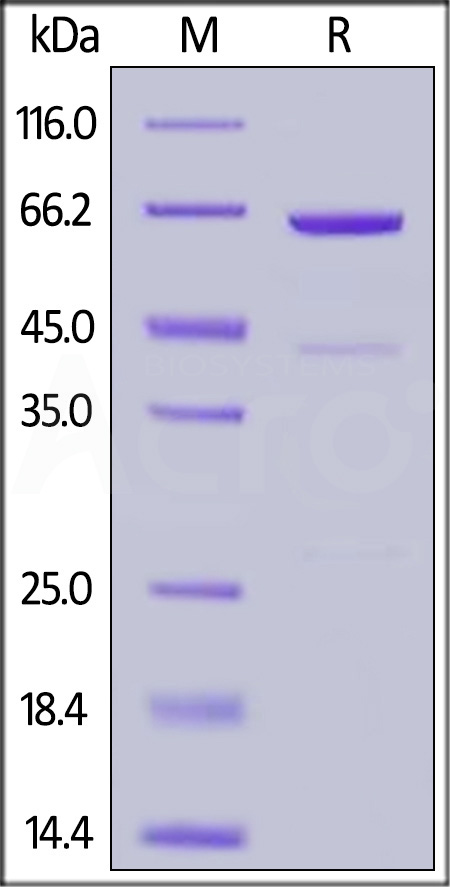TGF-β Induces the Secretion of Extracellular Vesicles Enriched with CD39 and CD73 from Cervical Cancer CellsMolina-Castillo, Monroy-García, García-Rocha
et alInt J Mol Sci (2025) 26 (6)
Abstract: The presence of TGF-β in the tumor microenvironment of cervical cancer (CC) is important for tumor progression. In this study, we analyzed the effect of TGF-β on the expression of the ectonucleotidases CD39 and CD73, which are involved in the generation of adenosine (Ado), in CC cells and in extracellular vesicles (EVs) secreted by these cells. Treatment of HeLa and CaSki cells for 72 h with recombinant human TGF-β increased the expression of CD39 and CD73 by 20 and 30% and by 40 and 100%, respectively. The addition of SB505124, an inhibitor of the TGF-β1 receptor, or GW4869, an inhibitor of exosome formation and release, reduced the expression and release of both ectonucleotidases in CC cells. Furthermore, TGF-β promoted the secretion of medium-large EVs (>130 nm) in HeLa cells (HeLa + TGF-β/EVs) and CaSki cells (CaSki + TGF-β/EVs), which increased the expression of CD39 (>20%) and CD73 (>60%), and EVs obtained from cells treated with TGF-β had a greater capacity to generate Ado than did EVs obtained from cells cultured in the absence of this factor (HeLa/EVs and CaSki/EVs). These findings suggest that the production of TGF-β in the CC TME can promote neoplastic progression through the secretion of EVs enriched with CD39 and CD73. Therefore, the inhibition of CD39+ CD73+ EVs could be a strategy for the treatment of CC.
Exosomes derived from a mesenchymal-like endometrial regenerative cells ameliorate renal ischemia reperfusion injury through delivery of CD73Shao, Wang, Ren
et alStem Cell Res Ther (2025) 16 (1), 148
Abstract: Renal ischemia reperfusion (I/R) injury is a major contributor to graft dysfunction and inflammation leading to graft loss. The deregulation of purinergic signaling has been implicated in the pathogenesis of renal I/R injury. CD73 and the generation of adenosine during purine metabolism to protect against renal I/R injury. A mesenchymal-like endometrial regenerative cell (ERC) has demonstrated a significant therapeutic effect on renal I/R injury. CD73 is a phenotypic marker of human endometrial regenerative cell exosomes (ERC-Exo). However, its immunosuppressive function in regulating purinergic metabolism has been largely neglected. Here, we investigate the protective effects and mechanism of ERC-Exo against renal I/R injury.Lentivirus-mediated CRISPR-Cas9 technology was employed to obtain CD73-specific knockout ERC-Exo (CD73-/-ERC-Exo). C57BL/6 mice who underwent unilateral ureteral obstruction were divided into the Untreated, ERC-Exo-treated, and CD73-/-ERC-Exo-treated groups. Renal function and pathological injury were assessed 3 days after renal reperfusion. The infiltration of CD4+ T cells and macrophages was analyzed by flow cytometry and immunofluorescence staining in kidneys. CD73-mediated immunosuppressive activity of ERC-Exo was investigated by bone marrow-derived macrophages (BMDM) co-culture assay in vitro. Flow cytometry determined macrophage polarization. ELISA and Treg proliferation assays detected the function of macrophages. Furthermore, the role of the MAPK pathway in CD73-positive Exo-induced macrophage polarization was also elucidated.Compared with Untreated and CD73-/-ERC-Exo-treated groups, CD73-positive Exo effectively improved the serum creatinine (sCr), blood urea nitrogen (BUN), and necrosis and detachment of tubular epithelial cells, necrosis and proteinaceous casts induced by ischemia. CD73 improved the capacity of ERC-Exo on CD4+ T cell differentiation in the renal immune microenvironment. Surprisingly, ERC-Exosomal CD73 significantly decreased the populations of M1 cells but increased the proportions of M2 in kidneys. Furthermore, CD73-positive Exo markedly reduced the levels of proinflammatory cytokines (IL-1β, IL-6, and TNF-α) and increased anti-inflammatory factors (IL-10) level in kidneys. ERC-Exosomal CD73 improved macrophage immunoregulatory function associated with the MAPK pathway (including ERK1/2 and p38 pathways), which exerted a potent therapeutic effect against renal I/R.These data collected insight into how ERC-Exo facilitated the hydrolysis of proinflammatory ATP to immunosuppressive ADO via CD73. CD73 is a critical modulator of the MAPK signaling pathway, inducing a polarization shift of macrophages towards an anti-inflammatory phenotype. This study highlights the significance of ERC-Exosomal CD73 in contributing to the therapeutic effects against renal I/R.© 2025. The Author(s).
CD73 Molecule Inhibitor Upregulates miR16 Expression in Experimental Glioblastoma and Inhibits Angiogenesis by Targeting VEGFArab, Ghasemi, Bahraminasab
et alJ Mol Neurosci (2025) 75 (2), 41
Abstract: The function of CD73 (Cluster of Differentiation 73), an enzyme involved in the formation of adenosine (ADO), in the development of glioblastomas has been demonstrated. Indeed, ADO helps tumor angiogenesis by stimulating endothelial cell migration, proliferation, and tube formation. However, the details of the molecular mechanisms are not yet fully understood. Given the importance of angiogenesis in cancer progression, invasion, and metastasis, this study aimed to investigate how the inhibition of CD73 by adenosine-5'-(α, β-methylene) diphosphate (APCP) affects the angiogenesis process of experimental orthotopic glioblastoma at mRNAs, microRNAs, and protein levels. According to the real-time-polymerase chain reaction (RT-PCR) results, inhibition of CD73 decreased the angiogenesis of glioblastoma by reducing the expression of vascular endothelial growth factor (VEGF) and hypoxia-inducible factor 1-alpha (HIF-1α) by ****P < 0.0001 and **P < 0.01, respectively. Furthermore, immunohistochemical staining showed that this treatment protocol attenuated the expression of VEGF and CD31. Moreover, APCP treatment significantly increased miR-16 expression in glioblastoma model rats by P < 0.001, but no significant change in miR-29A expression was observed. The results showed that the treatment did not lead to systemic damage or significant weight loss. Our results suggest that inhibition of CD73 may reduce the formation of new tumor vessels by inhibiting the VEGF, HIF-1α, and CD31 in this process. Therefore, CD73 may be a practical target and provide new opportunities to improve the treatment of malignant brain tumors.© 2025. The Author(s), under exclusive licence to Springer Science+Business Media, LLC, part of Springer Nature.
CD73 promotes the immunoregulatory functions of hepatic Tregs through enzymatic and nonenzymatic pathways in MASLD developmentJin, Zhong, Zhang
et alMol Metab (2025)
Abstract: Metabolic dysfunction-associated steatotic liver disease (MASLD) is a leading chronic liver disease characterized by chronic inflammation. Regulatory T cells (Tregs) highly express CD73 and play a critical role in modulating the immune response. However, the roles and mechanisms by which CD73 modulates Tregs in MASLD are still unknown. A choline-deficient high-fat diet (CDHFD) or methionine/choline-deficient diet (MCD) was used to establish a MASLD model. We found that CD73 expression was upregulated in Tregs via the FFA-mediated p38/GATA2 signaling pathway. Cd73 KO promoted MASLD progression, accompanied by decreased Treg viability and activity. Compared with Cd73 KO Tregs, adoptively transferred WT Tregs exhibited increased Treg activity and provided greater protection against hepatic inflammatory responses in MASLD. This immune protection is mediated by CD73 via both enzymatic and nonenzymatic pathways, degrading AMP into ADO to increase Treg function and block DR5-TRAIL-mediated cell death signaling. These findings suggest a potential immunotherapeutic approach for MASLD treatment and highlight its possible relevance for clinical application.Copyright © 2025. Published by Elsevier GmbH.


 +添加评论
+添加评论























































 膜杰作
膜杰作 Star Staining
Star Staining
















